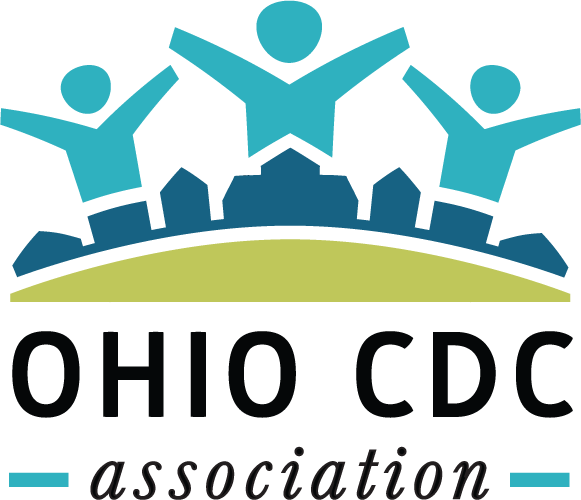This was originally published June 26, 2020 in the OCDCA Newsletter.
Federal News
Economic Injury Disaster Loan Program Reopens
The Small Business Administration reopened the Economic Injury Disaster Loan (EIDL) and EIDL Advance program portal to all eligible small businesses and nonprofits experiencing economic impacts due to COVID-19. Here's the press release.
SBA's EIDL program offers long-term, low interest assistance for a small business or nonprofits. These loans can provide economic support to help alleviate temporary loss of revenue. EIDL assistance can be used to cover payroll and inventory, pay debt or fund other expenses. Additionally, the EIDL Advance will provide up to $10,000 ($1,000 per employee) of emergency economic relief to businesses that are currently experiencing temporary difficulties, and these emergency grants do not have to be repaid.
SBA Announces Round 2 PPP Through CDFIs
The Small Business Administration announced that they are setting aside $10 billion of Round 2 funding for the Paycheck Protection Program (PPP) to be lent exclusively by Community Development Financial Institutions, or CDFIs. This set-aside ensures that forgivable, federally-backed loans will go to small businesses and community development nonprofits serving low-income communities. PPP loans are forgiven if all employees are kept on the payroll for eight weeks and the money is used for payroll, rent, mortgage interest, or utilities. Forgivable loans through CDFIs have a better chance of reaching marginalized communities. While the $10 billion set-aside is an important step forward, more work remains.
The Opportunity Finance Network's CDFI Locator tool has a filter to help small businesses find PPP loans and info on the Ohio CDFI Network here.
President Trump signed H.R. 7010, the Paycheck Protection Program Flexibility Act (PPPFA). The bipartisan bill relaxes rules governing the Paycheck Protection Program (PPP), increasing flexibility for loans that are originated under the PPP from this point forward. The bill extends the "covered period" during which businesses must expend their PPP funds, from eight weeks to 24 weeks-although recipients that received PPP loans before the enactment of the legislation may opt to retain the eight-week covered period.
For additional information, visit the SBA disaster assistance website at SBA.gov/Disaster.
Economic Development Administration Grants
The agency recently announced a $1.5b grant program as part of the CARES Act for economic development assistance programs to help communities prevent, prepare for, and respond to coronavirus.
Ex-Comptroller Otting's Attack on CRA
David Dayen of the American Prospect wrote an article explaining how Ex-Comptroller Joseph Otting "waged a determined effort at Office of the Comptroller of the Currency (OCC) to destroy the Community Reinvestment Act (CRA), one so brazen that he couldn't even get support from Trump-appointed regulators (FDIC and Federal Reserve) or even bank trade groups." NCRC and partners have pledged to file litigation. Recently House Financial Services Chairwoman Maxine Waters (D-CA) and Subcommittee Chairman Gregory Meeks (D-NY) introduced a Congressional Review Act resolution (H.J. Res 90) - a disapproval resolution that would overturn this harmful rule is expected a vote in the House soon. US Senate passage is unlikely to occur but maintaining pressure is important as practically rolling out the new rules will take a couple of years or more creating future opportunities for legislative and/or administrative solutions.
State News
State Small Business Resources
The Ohio Development Services Agency has some resources to help business owners make it through the current crisis. Here are some of the resources, and most of them are offered at no cost to businesses.
Small Business Development Centers: SBDC.Development.Ohio.Gov.
Minority Business Assistance Centers: Minority.Ohio.Gov.
Procurement Technical Assistance Centers: Find.GovContracts.Ohio.Gov.
Manufacturing Extension Partnership: MEP.Development.Ohio.Gov.
Export Assistance Network: ExportAssistance.Development.Ohio.Gov.
Entrepreneurial Services Provider Program: ESP.Development.Ohio.Gov.
JobsOhio is considering a new strategy to fight inequality and to expand its focus to small business. "We will play a significant support role to the government." JobsOhio President J.P. Nauseef said. "For sustainable and inclusive recovery, we know we need to do more, we have been challenged to do more."
Governor DeWine Signs HB168 - Brownfield Regulatory Reform Legislation
From our friends at the Greater Ohio Policy Center (GOPC)...HB168 will take effect on September 14, establishing the Bona Fide Purchaser Defense (BFPD) into Ohio law to encourage the redevelopment of brownfields.
Recently Governor DeWine signed HB168 into law, following the unanimous passage of HB168 through both the Ohio House and the Ohio Senate last month. The bill, introduced in March 2019 by former State Representative Steven Arndt (R - Port Clinton), provides liability protection to purchasers of brownfields sites through an affirmative defense. Brownfields are found in every county throughout the state, in both rural and urban communities. These blighted sites discourage investment and create barriers to job creation and economic development.
While incentives are still needed to offset the increased cost of redeveloping brownfields, HB168's passage will encourage brownfield redevelopment by incorporating the bona fide purchaser defense (BFPD) into Ohio law. Visit GOPC's BFPD FAQ page for more details on the BFPD.
Since the sunset of the Clean Ohio Revitalization Fund (CORF), brownfield redevelopment has been down in the state. GOPC, along with public and private sector stakeholders, acknowledge both regulatory reforms and increased incentives are needed to encourage the redevelopment of brownfields to spur economic development in the state. Last month, Reps. Hillyer and Swearingen introduced HB675, legislation to re-fund the CORF program.
